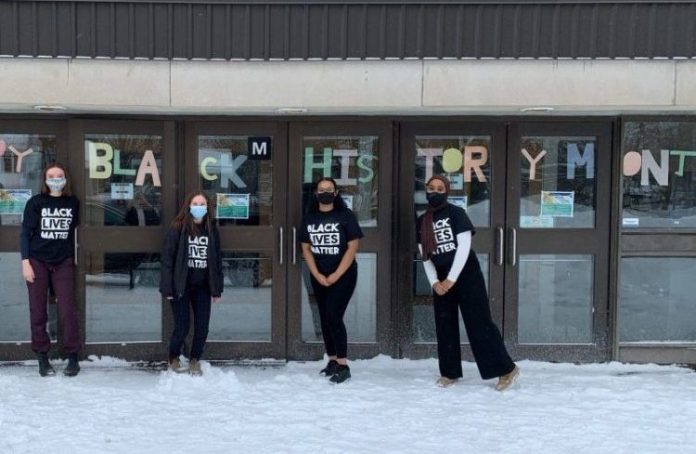Ten months of adversity and progression
By Dina Efrem
Eight months ago, I wrote an article for the NHS Corner of Kitchissippi Times on “Racial Diversity and Inclusivity at Nepean High School.” The past four years of being a racialized student at Nepean have been a diverse experience within itself. I have been challenged and pushed, but, ultimately, the valuable experiences of understanding the complexities of advocacy have made the journey worthwhile.
In my final year as co-president with Zeynab Ahmed, I have had the transcendent privilege of working alongside an executive team that has committed themselves to equity work within our school. The Diverse Student Union (DSU) has served as the catalyst for change and conversations at Nepean. DSU’s mission has been to disrupt racism, to support cultural diversity and individual differences and to help advocates for equity and social justice develop. Collaboratively, we seek to dismantle the mental and physical segregation of racialized students and create an environment of unity and understanding.
At the beginning of the year, we proposed to our new administration three asks: transparency, accountability and dialogue. Having a new administration allowed us to build a relationship before commencing our collaborative work, which resulted in preeminent success. We have witnessed a clear shift in the way equity work is viewed and prioritized by both our administration and staff, and these changes have come in alignment with the support of our administrators.
We have been advocating for the implementation of culturally relevant and responsive pedagogy within our classrooms, and many teachers have taken on the task of decolonizing and decentring their classrooms. Nepean High School (NHS) staff have formed their own discussion groups to assess current practices and where improvement is needed using anti-racist and diversity texts as guiding resources. To date, staff have completed three professional development sessions with Dr. Nicole West Burns, director of school services with the Centre for Urban Schooling at OISE, focusing on disrupting and dismantling institutionalized racism and oppression within education. The Student Services Department is also in the process of creating a scholarship for racialized students who work to build equity and participate in anti-racism efforts within the school community. At the Learning Commons (Library), they are in the process of auditing their collection with #ownvoices and equity in mind. Student experiences and voices are being recognized and celebrated on all levels.
These changes are not solely being put into effect on an administrative level, but active efforts are also being made by educators within the classrooms. Teachers have progressed towards the development of increased creative opportunities for personal expression and honouring the student voice. Through personal and/or collaborative learning, they have been reminded of the significance of viewing their practice through a lens of diversity and anti-oppression.
Ms. Gouveia teaches French at NHS and is one of the teachers who have been dedicated to this work. Through her experience teaching a racially, linguistically and culturally diverse group of students in her Grade 9 applied core French class last year, she continues to make a conscious effort in assessing her choice of material for racialized students to be able to see themselves represented in positive ways. This includes showing videos and recordings of people from around la Francophonie speaking French from various cultural backgrounds and the inclusion of diverse reading materials.
Ms. Moore also made changes in her Grade 10 and 11 English courses. Through reflecting on the content she previously used, she has become more aware of the biases she holds and society holds. She strives to use #ownvoices material, aiming to have students be mirrored within the texts they consume. Leading with empathy is a journey that can be uncomfortable, vulnerable and eye-opening, she says. She has even seen a shift in the responsiveness of racialized students. Her students have published their work in the school newspaper, Knightwatch; created videos connecting exposure to diverse voices to a decrease in bullying and racism in schools; constructed carefully worded responses to community calls for action; and written letters to marginalized communities.
These are just a few examples of the work that is being done. Teachers across departments, from the sciences to the arts, have acknowledged the work that needs to be done for the betterment of our school’s inclusivity and the racialized experience. As a community, we have come to understand that advocacy work means being in a constant state of knowing and not knowing, learning and unlearning. There is no guaranteed guide as the work is still in progress, but that must not discourage us from radically reimagining brighter days.
